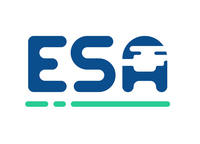Karpowicz, M
This paper deals with the problem of designing Nash equilibrium points in noncooperative games in which agents anticipate values of Lagrange multipliers coordinating their payoff functions. The addressed model of agents' interactions, referred to as price-anticipation game, is studied within the framework of coordination and mechanism design theory for hierarchical systems. Sufficient conditions are formulated for Nash-implementation of a~regular and isolated solution to coordination problem. An equilibrium design procedure is proposed and applied as an analytic tool in a~study of mechanism design games. In the considered setting the well-known fact is demonstrated that gains from reaching a~desired solution to coordination problem in Nash equilibrium point need not balance the overall costs of its implementation. However, it is also demonstrated how these costs can be distributed between the agents and related to the particular organization of interactions in the system. Finally, application of the developed framework in the field of Internet traffic engineering is presented.












